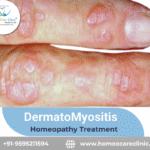Postpartum Psychosis
Postpartum psychosis is a rare but serious mental health condition that can occur in women after childbirth. It is a medical emergency that typically requires immediate intervention. It is much more severe than the “baby blues” or postpartum depression, and it affects about 1–2 women per 1,000 births.
Symptoms of Postpartum Psychosis
Mood and Emotional Changes:
Severe mood swings: Extreme highs (mania) and lows (depression).
Euphoria or agitation: Feeling overly elated or restless.
Irritability: Unexplained anger or frustration.
Cognitive and Perceptual Changes: Confusion or disorientation: Difficulty understanding what is happening.
Hallucinations: Seeing or hearing things that aren’t there.
Delusions: Strong, irrational beliefs, often related to the baby or oneself.
Paranoia: Feeling suspicious or fearful without reason.
Behavioral Changes:
Insomnia: Inability to sleep even when tired.
Hyperactivity: Excessive energy or restlessness.
Risky behavior: Making impulsive or dangerous decisions.
Thoughts of self-harm: Feeling the urge to harm oneself.
Harmful thoughts toward the baby: Thoughts of harming the infant, though these are often distressing to the mother.
Causes of Postpartum Psychosis
Hormonal Changes-
The rapid drop in estrogen and progesterone after childbirth may trigger postpartum psychosis in susceptible individuals, as these hormones are linked to mood regulation.
History of Mental Illness-
A personal or family history of bipolar disorder or psychosis significantly increases the risk.
Women with a history of postpartum psychosis in a previous pregnancy are at high risk of recurrence.
Sleep Deprivation-
Severe sleep disturbances, common after childbirth, can contribute to psychotic symptoms, especially in individuals predisposed to mental illness.
Genetic Factors-
A family history of psychiatric disorders suggests a potential genetic predisposition to postpartum psychosis.
Psychosocial Stressors-
Stressful life events, lack of social support, or relationship difficulties during or after pregnancy may exacerbate symptoms.
First-Time Motherhood-
Being a first-time mother (primiparity) is considered a risk factor, possibly due to the added stress and adjustments required.
Biological Vulnerability-
Abnormalities in the brain’s neurotransmitter systems (such as dopamine and serotonin) may play a role in triggering psychosis in vulnerable individuals.
Infections or Medical Conditions-
Certain infections or underlying medical conditions, such as thyroid dysfunction, may contribute to the onset of psychotic symptoms
Homeopathic Treatment of Postpartum Psychosis
Commonly Used Homeopathic Remedies –
1)Pulsatilla
Indicated for women who feel weepy, overly sensitive, and crave affection and reassurance.
Often used when symptoms include mood swings and a sense of abandonment.
2)Sepia
for women feeling emotionally detached, overwhelmed, or resentful toward their baby or family.
Useful for irritability, indifference, and exhaustion.
3)Ignatia Amara
For grief, sadness, or suppressed emotions.
Helps with mood swings, emotional vulnerability, and feelings of being overwhelmed.
4) Natrum Muriaticum
For individuals who bottle up emotions, feel sad, or experience grief without sharing their feelings.
Often used for those who appear stoic but are deeply distressed internally.
5)Belladonna
Indicated for acute states of agitation, restlessness, or confusion.
May be helpful if there are sudden emotional outbursts or hallucinations.
6)Lachesis
For intense jealousy, suspicion, or hyperactive thoughts.
May be helpful for controlling verbal aggression or obsessive thoughts.
FAQs of Postpartum Psychosis
1)How common is postpartum psychosis?
Ans-Postpartum psychosis affects approximately 1 to 2 out of every 1,000 births. While it is rare, it is considered a psychiatric emergency requiring immediate attention.
2)Who is at risk of postpartum psychosis?
Ans- You have a history of bipolar disorder, schizophrenia, or previous episodes of postpartum psychosis.
You have a family history of mental health disorders.
You experienced complications during delivery or extreme stress after birth
3)How is postpartum psychosis diagnosed?
Ans- A healthcare provider, such as a psychiatrist or a medical doctor, will evaluate symptoms, medical history, and mental health history. A thorough assessment ensures accurate diagnosis and treatment.
4)Will postpartum psychosis affect my bond with my baby?
Ans- While postpartum psychosis can temporarily disrupt bonding, timely treatment can help rebuild the mother-baby connection. Support from loved ones and healthcare providers is crucial.
5)Is postpartum psychosis the same as postpartum depression?
Ans -No. While both are postpartum mental health conditions, postpartum psychosis is more severe and includes psychotic symptoms like hallucinations and delusions, which are not present in postpartum depression.
In conclusion, Homeo Care Clinic offers a holistic approach to treating postpartum psychosis. The remedies mentioned above can treat the underlying causes of the condition and offer relief from the discomfort. However, it is important to consult a qualified homeopathic practitioner for the correct dosage and duration of treatment. Homeo Care Clinic provides comprehensive care for various ailments and offers customized treatment plans based on individual requirements.
To schedule an appointment or learn more about our treatment, please visit our website or give us a call +91 9595211594 Our friendly staff will be happy to assist you. If you’re searching for the best homeopathy doctor, we are here to help.
Follow us on Facebook, Twitter, and Instagram for valuable insights into the world of homeopathy and holistic health.
Facebook – https://www.facebook.com/homeocareclinicpune
Instagram – https://www.instagram.com/homeocareclinic_in
Website – https://www.homeocareclinic.in
Chat with the best homeopathic doctor privately
If you have any queries regarding your disease or any symptoms, Click to send a WhatsApp message. Our best homeopathy doctor will be happy to answer you.
Book an Appointment
If you want to visit our clinic, Click to book an appointment.
Online treatment
If you are a busy professional, or you are living in a remote town or city, with no best homeopathic doctor near you, Clickhere to start an online homeopathic treatment with the world’s exclusive, most experienced, and best homeopathic clinic, managed by Dr. Vaseem Choudhary world-renowned homeopathic doctor






